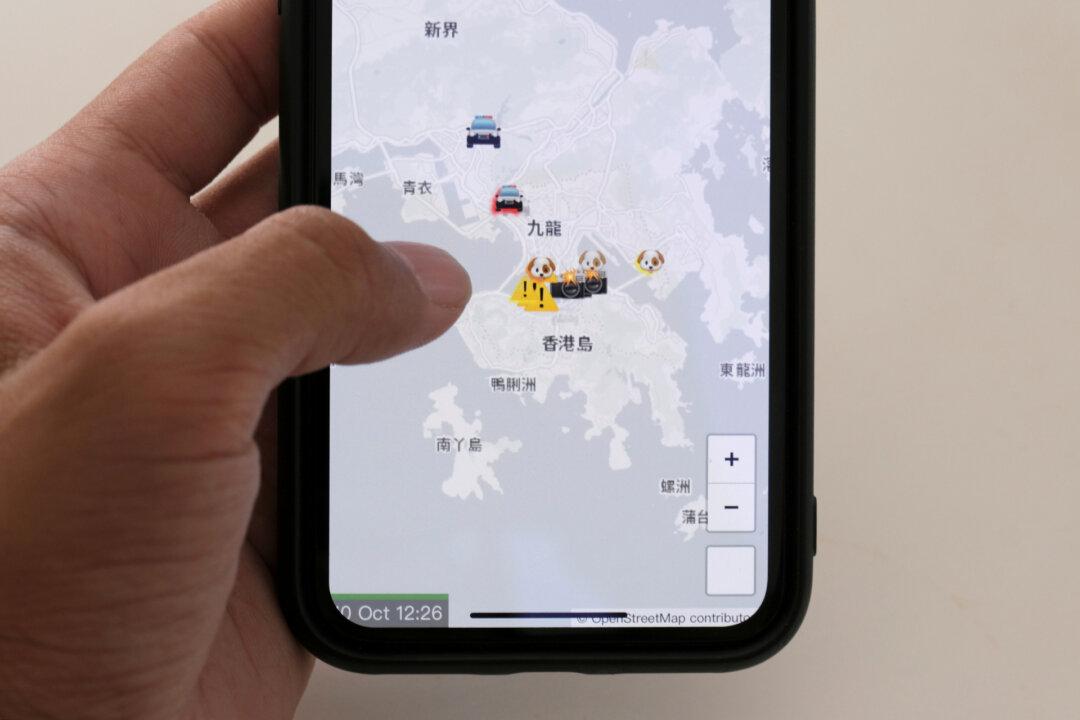Apple removed an app from its App Store that provides real-time updates for Hongkongers about police and protester movements on Oct. 10, becoming the latest international brand that has caved to pressure from the Chinese regime.
The dynamic, crowd-sourced app HKmap.live has become popular for helping people to navigate through the tear gas-filled streets in Hong Kong, a former British colony where pro-democracy protests have erupted since June against Beijing’s creeping interference. The emojis and spontaneous updates proved handy for users to track conditions such as train closures and potential clashes.





